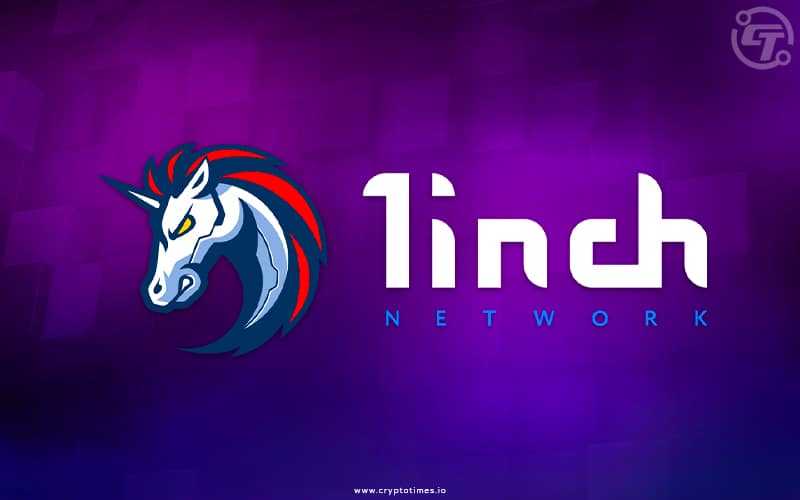The Ethereum-based decentralized exchange (DEX) aggregator “1Inch,” has added a brand-new peer-to-peer (P2P) limit order feature to its DeFi toolkit, as announced in the press release.
In Brief:
- 1inch built a P2P feature that is supported by Ethereum, BNB Chain, Polygon, Avalanche, and others.
- It will allow users to conduct trustless trades via smart contracts, and also send the P2P order as a URL via email.
- Swap orders of any token on 1inch will be made without intermediaries.
Built atop the 1inch limit order protocol, P2P swaps are now available on all platforms and blockchains supported by 1inch. These include Ethereum, BNB Chain, Polygon, Avalanche, Optimistic Ethereum, Arbitrum, and Gnosis Chain.
Instead of going through an exchange or intermediary, P2P allows users to swap tokens directly with other individual users. Unlike traditional transactions, this allows users to conduct trustless trades via smart contracts, ensuring that both users receive their desired crypto assets.
Before using the feature, users must find a counterparty (another individual or institution) with whom to exchange tokens. After obtaining the counterparty’s crypto address, users simply enter it into the P2P order tab of the 1inch dApp.
So there will be no need of 1inch to fill the OTC order for you without you identifying the taker/trader. Instead of 1inch matching your order with a taker, you get to choose who will fill the other side of the trade.
The way it works is:
Traders can agree to swap tokens at their own rate or at the market rate determined by 1inch’s spot price aggregator tool. The spot price aggregator collects price data from various other DEXs on Ethereum and uses a liquidity weighted average to determine token prices. Users can also enter a percentage above or below the market rate to provide a consistent discount/markup on a swap.
Following the creation of the swap order, it can be sent to the counterparty via a simple URL (sent by email, messengers, etc). The counterparty then completes the swap by filling the order – which has already been pre-signed by the sender – and paying the gas fee.
The benefits are:
The most common use cases for P2P orders are when liquidity for a specific token is insufficient for a large OTC deal or when tokens are in the presale stage. P2P swaps provide users with trustless access to presale tokens or unpopular tokens that have not yet been listed on exchanges.
Traders can avoid slippage costs by using peer-to-peer swaps. This occurs when market prices fluctuate between the time an order is signaled and when it is actually fulfilled, which is common in the volatile crypto space.
1inch has been working to one-up its game. Last month, 1inch announced the launch of Earn, a set of liquidity pools optimized for Stablecoins to make better use of capital in AMM-based pools for stablecoin swaps.






